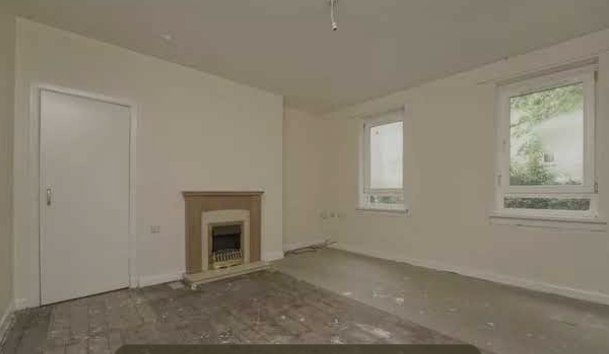CBH Misses Key Reletting Target

Tenants and Council taxpayers to pay the price.
The first performance report after bringing CBH in-house tells a clear story: voids have risen, the HRA has taken a financial hit, and tenants are paying the price for a politically motivated decision.
The Liberal Democrats had nearly 3,000 households waiting for homes. They had a housing organisation that was performing well. They chose to restructure anyway, despite staff warnings, and performance immediately deteriorated.
This isn't just policy failure—it's a failure of political priorities. When councils put their own financial and political interests ahead of tenant welfare, housing waiting lists grow longer, empty properties stay empty longer, and the people who need homes most suffer the consequences.
The evidence is clear: this restructure was mishandled, and tenants and taxpayers are paying the price.
The Numbers Don't Lie
Voids have risen. This isn't speculation—it's what the council's own data shows following their decision to dissolve Cheltenham Borough Homes (CBH) and take direct control of 5,000 council properties.
Why does this matter? Because every empty council property represents a double failure: lost rental income for the Housing Revenue Account (HRA), and another family on the 3,000-strong waiting list forced to wait longer for a home.
Each void costs roughly £80-120 per week in lost rent. But the real cost is human—children in overcrowded accommodation, families in temporary housing, people sleeping rough whilst council properties sit empty.
The HRA Hit
The Housing Revenue Account is ring-fenced money that must be used for council housing. When rental income drops because properties are empty, there's less money for repairs, maintenance, and new homes. It's a direct hit to the service tenants depend on.
The Liberal Democrats promised the restructure would improve efficiency. The immediate rise in voids suggests the opposite has happened.
Was This Really About Tenants?
Let's examine the council's stated reasons for bringing CBH in-house:
- "Increasing financial pressures"
- "Changing regulatory framework"
- Better alignment with net zero goals
- Improved affordable housing delivery
Now let's look at what actually happened: performance on the key indicator has deteriorated immediately. This raises fundamental questions about whether tenant welfare was truly the priority.
The Political Context
The Liberal Democrats have controlled Cheltenham Borough Council since 2010, strengthening their grip with 36 of 40 seats in 2024. But control brings responsibility—and accountability.
Council leader Rowena Hay framed the restructure as bringing services "closer to tenants." Yet the first performance data suggests tenants are worse off, not better.
Was this decision really about improving housing services? Or were other factors at play?
The Financial Picture
To understand the real motives, we need to look at what else was happening with council finances:
The Minster Exchange bailout: In 2022, the council had to inject an additional £2.5 million to rescue this stalled regeneration project.
Golden Valley Cyberpark: A £20 million government-funded commitment to create 12,000 jobs and 3,700 homes—a flagship project carrying enormous political weight.
Budget pressures: The council faced mounting financial constraints whilst trying to maintain services and fund ambitious development projects.
Against this backdrop, bringing CBH in-house looks less like a service improvement and more like a financial manoeuvre. Did the council need access to CBH's resources? Were they cutting costs to fund other priorities?
Organisational Stress
The Gloucestershire Live report from November 2023 captured staff concerns about the transition. Workers warned that the restructure could harm service delivery. They were right.
When you eliminate senior roles—as happened at CBH—you lose institutional knowledge and operational expertise. When you change reporting structures and systems during a housing crisis, you create disruption. The rise in voids suggests this disruption has been significant.
Staff concerns weren't just about job security—they were about their ability to serve tenants effectively. The performance data validates those concerns.
Who Pays the Price?
The cost of this mishandling falls on three groups:
Tenants: Facing longer waits for homes, reduced rental income funding their services, and the stress of knowing their needs weren't the priority.
Council taxpayers: Ultimately responsible for covering any financial shortfalls created by poor decision-making and reduced HRA income.
Housing waiting list families: Nearly 3,000 households whose chances of getting a home have been set back by increased voids and organizational disruption.
The Democratic Deficit
The Liberal Democrats controlled this decision completely. They had the votes, they had the power, and they chose to prioritise the restructure despite staff warnings.
The immediate rise in voids suggests they got it wrong. But more fundamentally, it suggests they made a decision that put their own political and financial interests ahead of tenant welfare.
What This Reveals
When politicians promise efficiency and deliver the opposite, when they claim to put tenants first but performance deteriorates, when they control the narrative but can't control the consequences—that's when democratic accountability matters most.
The rise in voids isn't just a performance blip. It's evidence that the Liberal Democrats' decision to bring CBH in-house was poorly planned, badly executed, and motivated by factors other than tenant welfare.
The Bigger Picture
This story isn't just about empty properties. It's about political priorities, financial management, and who really pays when councils get it wrong.
The Liberal Democrats promised tenants wouldn't be "adversely affected." The performance data proves otherwise. They promised efficiency and delivered disruption. They promised better service and created worse outcomes.
Join the Fight for Better Housing
This is why the Cheltenham Tenants' Union exists. We're here to lobby the council, to put tenancy issues—both private and social—firmly on the political agenda. We're here to ensure that when decisions are made about housing, tenants' voices are heard first, not last.
But we need to grow. We need more members, more voices, more power to hold the Liberal Democrats and future councils accountable. The only way to change the balance of power is to organise.
Join us. It's time for private and social tenants to unite. Subscribe to our newsletter. Donate using the button below.
The council has shown they'll prioritise their own interests over tenant welfare. It's time tenants organised to prioritise our own.
